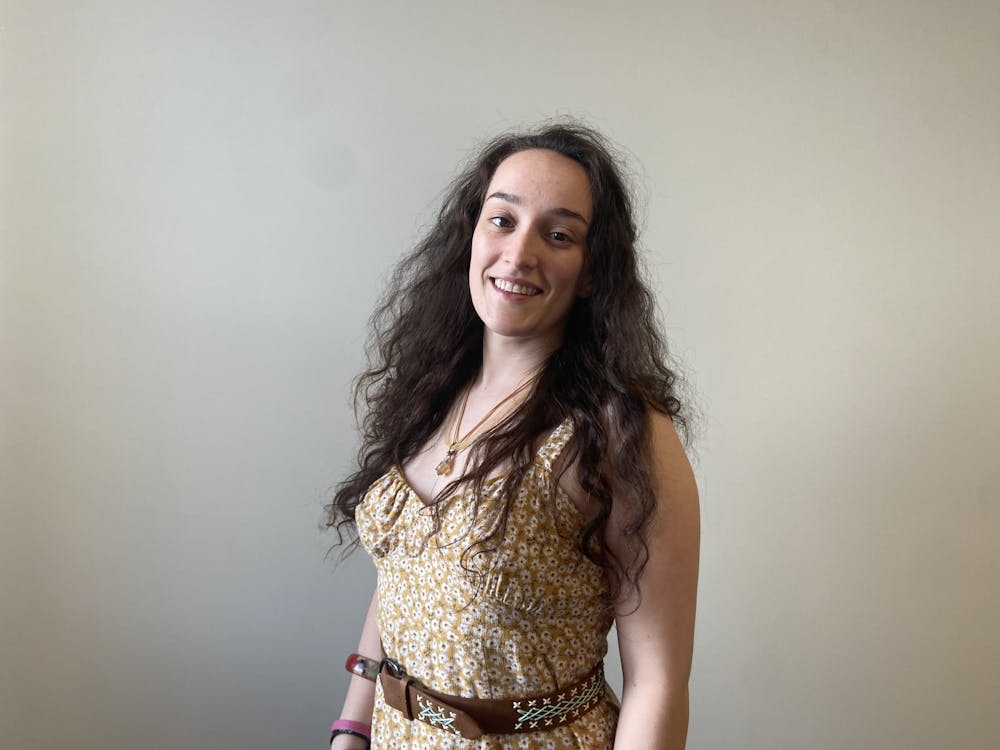COLUMN: Have the hard conversations
Confide in friends and loved ones, no matter where you are
Hard conversations are exactly that ... hard.
However, as a journalist and, more so, an empath, I’ve learned that those are the conversations we grow and learn the most from.
For most of my life, I celebrated Catholic and Jewish holidays. Growing up in an interfaith household meant I got to experience two of the largest and smallest religious groups in the world.
But at the same time, it couldn’t have felt anything farther from religion. I did not go to Church or Temple at all. Growing up, holidays were mostly about the presents.
This changed for me in 2022. It was the first time in my life I was not home to decorate a Christmas tree and partake in the usual traditions.
That year, I was in Israel.
It was my first experience ever being surrounded by people my age who shared the same Jewish identity as me. It was life-changing.
And so was Oct. 7.
It seems it awoke a lot of different emotions and ideas across the globe.
Aside from the fear I felt for my family in Jerusalem, it evoked curiosity for me. I became deeply interested about the history of this conflict, how the world arrived at a place of such divisiveness, and most of all, if any of that matters to the rest of the world.
Sometimes it feels like this will never end and society will never agree.
The one thing I do know is that ignoring this war is harmful.
In September, Central Michigan University published a podcast with Director of Diversity Education Nikita Murry. In it, she answers questions about why hard conversations are necessary.
“Everybody has a perspective, and as a culture, we've never really focused on hearing another person's perspective and just allowing that to be,” she said. “No judgment, no assessment, no consequence to it, just this is another person's perspective.
“And so, we get to learn from people in that way when we allow it to happen, but there's so much of our society historically ... connected to there being an unpleasant consequence of allowing that to happen, and so we shy away from it or we just flat-out reject it.”
Since Oct. 7, I have been in search of community and consolation. To find it, I spent Hannukah with my grandparents in my hometown of Indian Harbor Beach, Florida.
It was an incredibly special experience. Not only did I get to light the menorah with my grandparents for the first time in over a decade, I got to experience Judaism through their lens.
With that, of course, came hard conversations.
In talking about the Israel-Hamas war, we did not agree on everything. Our differences resulted in disagreements. Like much of the world, we struggled to agree on Israel's response to the Oct. 7 attacks and possible resolutions to this war. We're not the only ones.
Last month, the New York Times published an article about generational divides among Jewish American families.
I'm not here to discuss the content of mine or my grandparents opinions. The point is that, like I did, people can become so deeply engrained in their opinion that we forget that's all it is – an opinion.
Like Murry said to do, I tried to relieve myself of all judgment or reaction when having conversations about the war with my grandparents. I kept reminding myself that all of their life experiences up until that very moment have led them to think the way they do, as is the same for me.
And for you.
If we want to see any change in the world when it comes to the Israel-Hamas war, it must start with non-judgmental and transparent dialogue.
I challenge you to start a conversation with someone you do not agree with. Enter spaces that challenge your opinions.
Allow yourself the time and space to understand why another person thinks the way they do.
The only way to understand others – even and especially when you do not agree – is to have those hard conversations.
Don't wait for them to find you. Seek it. Initiate it. And let's all grow together.
Aurora Rae Abraham is a senior reporter and former Central Michigan Life editor-in-chief.







